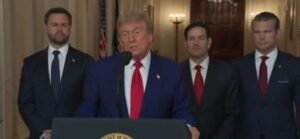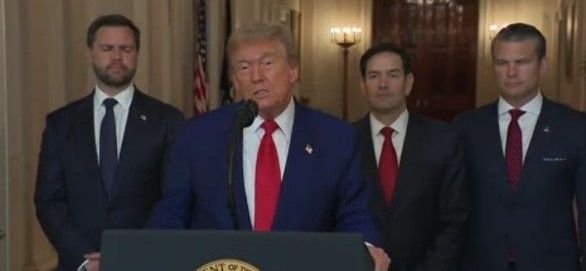Navigating Global Relations: Why the U.S. Is Leaving UNESCO and Other Key International Bodies

Why the U.S. Is Leaving UNESCO
The United States’ ties with major global organizations have always had their share of ups and downs. A recent headline-maker is America’s renewed decision to withdraw from UNESCO — the United Nations Educational, Scientific and Cultural Organization. This move is sparking fresh debate about the U.S. approach to multilateral cooperation and global leadership. Here’s what UNESCO does, why the U.S. has such a complicated history with it, and where else the U.S. has stepped back on the world stage.
What Is UNESCO?
Founded after World War II, UNESCO’s mission is to promote peace through international cooperation in education, science, and culture. Its founding principle is clear: “Since wars begin in the minds of men, it is in the minds of men that the defences of peace must be constructed.”
UNESCO’s key programs include:
✅ World Heritage Sites: Protecting sites of outstanding universal value.
✅ Education for All: Supporting equal access to quality education worldwide, especially for girls and marginalized communities.
✅ Scientific Collaboration: Enabling international partnerships, like tsunami warning systems and sustainable water use.
✅ Freedom of Expression: Defending press freedom and journalist safety.
✅ Cultural Diversity: Safeguarding living cultural traditions and creative expressions.
A Rocky Relationship: The U.S. and UNESCO
The U.S. has had a complicated, stop-start relationship with UNESCO since it became a founding member in 1945:
1984: The Reagan administration withdrew, citing budget and management concerns, as well as perceived anti-Western bias.
2003: Under President George W. Bush, the U.S. rejoined UNESCO as part of a renewed commitment to international collaboration.
2011: After UNESCO accepted Palestine as a full member, U.S. funding — about 22% of UNESCO’s budget — was automatically cut due to domestic law.
2017: The Trump administration announced a complete withdrawal, effective in 2018, over claims of anti-Israel bias and a need for structural reform.
2023: The Biden administration restored ties.
2025: The Trump administration again announced the U.S. would leave UNESCO, and the withdrawal will officially take effect on December 31, 2026, according to the State Department.
Impact: This repeated exit and re-entry cycle has strained UNESCO’s budget and reduced U.S. influence in key cultural, educational, and scientific initiatives worldwide.
More U.S. Withdrawals from International Agreements
The UNESCO exit is part of a broader shift in U.S. foreign policy in recent years. Here are other significant withdrawals:
1️⃣ World Health Organization (WHO)
The Trump administration announced the U.S. would leave the WHO in 2020, citing its handling of the COVID-19 crisis and its relationship with China.
2️⃣ United Nations Human Rights Council (UNHRC)
In 2018, the U.S. pulled out, claiming the Council unfairly targeted Israel and welcomed countries with poor human rights records.
3️⃣ Paris Agreement on Climate Change
Arguing the deal placed an unfair economic burden on American industries, the U.S. exited the landmark climate accord in 2020.
4️⃣ Iran Nuclear Deal (JCPOA)
In 2018, the Trump administration withdrew from the Iran nuclear deal, designed to prevent Iran from developing nuclear weapons, and reinstated sanctions.
Looking Ahead: What Does This Mean for America’s Global Role?
Stepping back from international bodies reflects a foreign policy approach focused on national priorities and skepticism toward multilateral institutions. Supporters say this protects American interests and reduces unnecessary obligations. Critics warn that repeated withdrawals undermine U.S. influence and weaken the global system for tackling shared challenges like climate change, pandemics, and human rights abuses.
With the latest UNESCO withdrawal now set to take full effect on December 31, 2026, the debate continues over how these moves will shape America’s global standing in the years ahead.
For more articles










